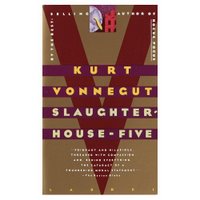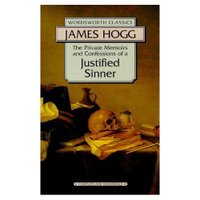 It's a summer of pre-destination here. The book group's been reading Kurt Vonnegut's Slaughterhouse Five, the classic anti-war book in which Billy Pilgrim flits through time, living his life in a strange order and finding that, from this perspective, everthing is inevitable, sweet and tragic.
It's a summer of pre-destination here. The book group's been reading Kurt Vonnegut's Slaughterhouse Five, the classic anti-war book in which Billy Pilgrim flits through time, living his life in a strange order and finding that, from this perspective, everthing is inevitable, sweet and tragic.I last read this at the age you should read it - late teens. This time round, I was surprised to see how "literary" the book is. This should be no surprise as Vonnegut is an old-school literary author who believes - or at least hopes - in the power of books to change things. So every other page, it seems, has references to books, books and more books. From Celine, to Charles MacCay's Extraordinary Popular Delusions.
He fall foul of one of the problems of books, and the loving way he quotes them. As well as his personal experience, he goes for the facts about Dresden to a book, possibly a brillian one, but it's a book by David Irving, whose status as a historian is now blown. So we don't quite trust the history, but Slaughter House Five is still a great book.
 Not quite so taken by the next cult classic, but once again, it's all about pre-destination and evil. I've heard people raving about James Hogg's Confessions of a Justified Sinner as a book which punctures the self-righteous and skewers religion (something Vonnegut likes to do as well). Written in the nineteenth century, and set in Scotland in the eighteenth century, it's the story of someone who "knows" he is justified by faith, not work. It doesn't matter what he does, and he winds up committing horrible crimes.
Not quite so taken by the next cult classic, but once again, it's all about pre-destination and evil. I've heard people raving about James Hogg's Confessions of a Justified Sinner as a book which punctures the self-righteous and skewers religion (something Vonnegut likes to do as well). Written in the nineteenth century, and set in Scotland in the eighteenth century, it's the story of someone who "knows" he is justified by faith, not work. It doesn't matter what he does, and he winds up committing horrible crimes.It's meant to be a prototype "modern" novel, with an unreliable narrator, literary games and more. And, well, yes, all of that is there, but it's not exactly a great read. It's a brilliant idea, and it's fascinating. But as a book, it's got some drawbacks.
1. It's not exactly a page-turner. The structure means you are reading the same events over twice, once told by the editor, and once by the narrator. You know how they turn out, so for a large part of the book, you are (or I was) thinking "get on with it!"
2. The narrator is a dick. This could be an interesting device, but the chilling, deluded seral killer Wringhim is Mr Pooter, who doesn't know how ludicrous he is. Sometimes Hogg goes for comedy (when Wringhim says "I am the sword of the Lord and pestilence is my sister" to his jailors) but mostly he falls between two stools...
3. ...because the theological points aren't that great either. OK, justification and predestination are dangerous ideas. We get the picture.
The history of the book's unpopularity and popularity is interesting. It fell out of favour, and came back in a big way since the 1940s. I think it's due to slump again, as we start to see it as a sort of Frankenstein-esque fable, that's a bit heavy on the moralising.
It does come with an excellent little foreward, which helped me out - it was just the potted summary of the religious and political background to life in Scotland in about 1700.
OK than -- next up on the pre-destination-go-round is The Time Traveller's Wife, by Audrey Niffeneger. No problems with readability there.

No comments:
Post a Comment